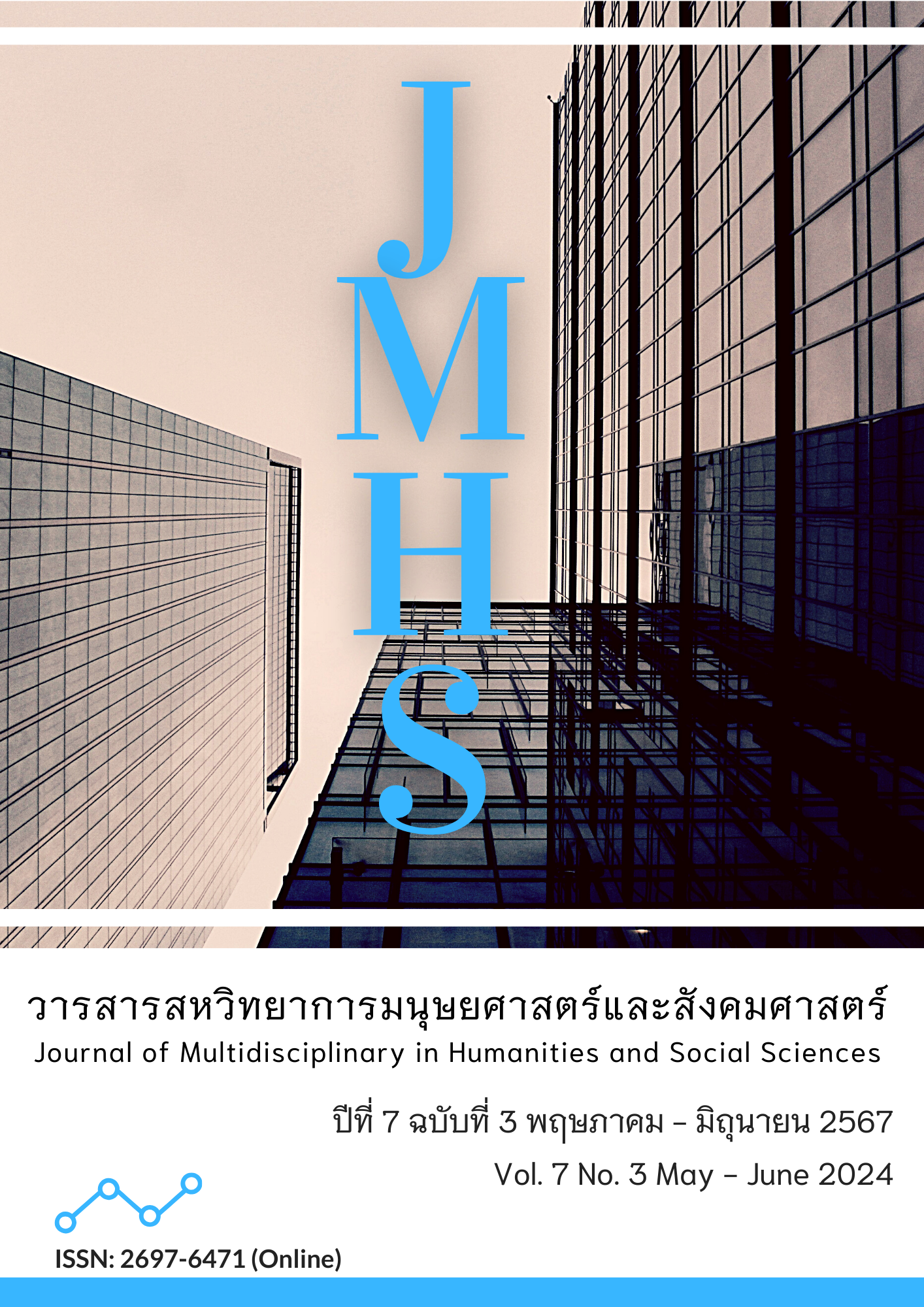Quality Mechanism to Enhance Efficiency of the Educational Service
Main Article Content
Abstract
The objective of this article was to present a quality mechanism to improve efficiency. Operations of the educational service area office, according to the operational framework of the educational service area office concept of operating, according to policy. Especially the framework for evaluating national quality awards. From the study of theoretical concepts, conduct a literature review and interview relevant people. It was found that there were 245 educational area offices throughout the country. Still unable to carry out all missions efficiently to the point of receiving awards and honors. Therefore, this article showed guidelines for the efficient operation of the educational service area office. There are international standards. According to the framework and operational guidelines, according to the national quality award criteria, Which is considered a world-class operating standard. It can also be a guarantee of the quality of operations. Resulting in the opportunity to receive national awards. If any area office submits a request for evaluation to receive a national quality award, the quality mechanism consists of eight mechanisms: 1) Corporate Leadership Mechanism: CLM; 2) System Planning Mechanism: SPM; 3) Service Provider Focus Mechanism: SPFM; 4) Knowledge Management Mechanism: KMM; 5) Personnel Management Mechanism: PMM; 6) Operating Mechanism: OM; 7) Result Mechanism: RM; and 8) Sustainable Development Mechanism: SDM. The author therefore presents quality mechanisms to enhance the efficiency of the office in the field of education presented in this academic article.
Article Details

This work is licensed under a Creative Commons Attribution-NonCommercial-NoDerivatives 4.0 International License.
Views and opinions appearing in the Journal it is the responsibility of the author of the article, and does not constitute the view and responsibility of the editorial team.
References
ณวิญ เสริฐผล. (2563). การดำรงอยู่ของภูมิปัญญาท้องถิ่นในสังคมโลกาภิวัตน์. บัณฑิตแสงโคมคำ, 5(2), 328-329. สืบค้นจาก https://so02.tci-thaijo.org/index.php/jsbs/article/view/245405
พัฒนะ เรือนใจดี และ มารุตพงศ์ มาสิงห์. (2561). ข้อสังเกตบางประการเกี่ยวกับรัฐธรรมนูญแห่งราชอาณาจักรไทย พุทธศักราช 2560. นิติศาสตร์และสังคมท้องถิ่น, 2(1), 1-25.
สำนักงานคณะกรรมการการศึกษาขั้นพื้นฐาน. (2557). เกณฑ์รางวัลคุณภาพแห่งสำนักงานคณะกรรมการการศึกษาขั้นพื้นฐาน (OBECQA) ของโครงการโรงเรียนมาตรฐานสากล ปี 2557-2558. กรุงเทพฯ: กระทรวงศึกษาธิการ.
สำนักงานคณะกรรมการการศึกษาขั้นพื้นฐาน. (2559). คู่มือการปฏิบัติงานขับเคลื่อนการปฏิรูปการศึกษาของกระทรวงศึกษาธิการในส่วนภูมิภาค. กรุงเทพฯ: กระทรวงศึกษาธิการ.
สำนักงานรางวัลคุณภาพแห่งชาติ สถาบันเพิ่มผลผลิตแห่งชาติ กระทรวงอุตสาหกรรม. (2562). เกณฑ์รางวัลคุณภาพแห่งชาติ ปี พ.ศ.2563 -2564 TQA Criteria for Performance Excellence Framework. กรุงเทพฯ: สถาบันเพิ่มผลผลิตแห่งชาติ.
สำนักงานเขตพื้นที่การศึกษาประถมศึกษาปราจีนบุรี เขต 2. (2564). แผนปฏิบัติราชการประจำปีงบประมาณ พ.ศ. 2564. ปราจีนบุรี: กลุ่มนโยบายและแผน.
เรืองวิทย์ เกษสุวรรณ. (2550). การจัดการคุณภาพจาก TQC ถึง TQM,ISO 9000 และการประกันคุณภาพการศึกษา. (พิมพ์ครั้งที่ 4). กรุงเทพฯ: บพิธการพิมพ์.
ใจชนก ภาคอัต. (2555). การรับรู้และการมีส่วนร่วมของบุคลากรสถาบันบัณฑิตพัฒนบริหารศาสตร์ในการพัฒนาคุณภาพสถาบันสู่ความเป็นเลิศตามเกณฑ์รางวัลคุณภาพแห่งชาติ. กรุงเทพฯ: สถาบันบัณฑิตพัฒนบริหารศาสตร์.
Malcolm Baldrige. (2013, November 10). Education Criteria for Performance Excellence 2013-2014. Retrieved September 2, 2023, from https://www.nist.gov/baldrige/2013-2014-criteria-performance-excellence


